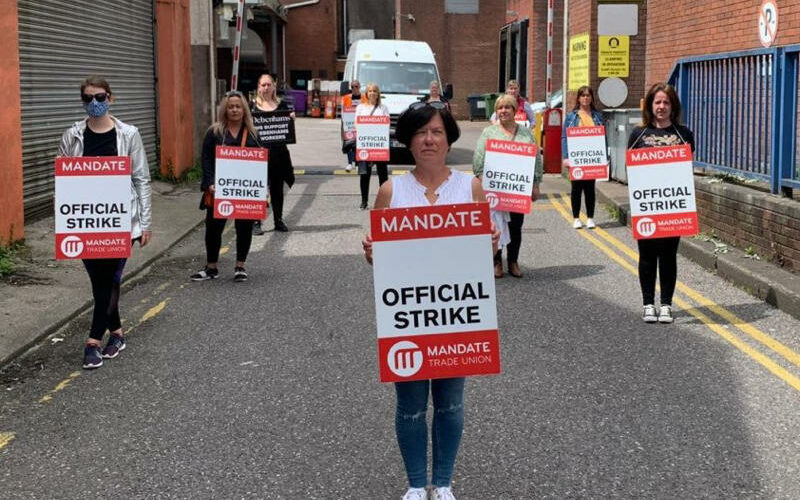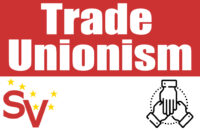Covid-19 did not cause the lack of workers’ rights in Ireland, but it most certainly exposed them.
The dispute at Debenham’s reveals the lack of workers’ rights, and the lack of actual experience among workers of disputes, struggle, organising and tactics as a result of the decline in union membership and union activity over the last thirty years, especially since the introduction of the Industrial Relations Act (1990).
It has been a steep learning curve for the workers in dispute, but they have done themselves proud, heroically defending their rights and those of all other workers who will find themselves in a similar situation unless the balance of power is tipped towards workers and away from employers.
Unfortunately the Debenham’s dispute is not unique. We have seen similar situations before: in Clery’s department store and Connolly shoes, for example. Debenham’s was even more vindictive and callous, closing down the business at the height of the pandemic when workers were in quarantine. They informed the workers by e-mail that they were being laid off.
They claim they have not enough assets to pay the collective redundancy agreement of 2016—this despite almost €30 million in stock still in the shops, and a very lucrative on-line business. This meant that the collective agreement of four weeks’ redundancy per year of service was out the window, and the workers would only receive the statutory redundancy payment based on two weeks’ service. The workers and their union have been fighting this situation for almost six months now.
Under employment law as it stands, the company has no obligation to pay the collective agreement. The Duffy-Cahill Report, produced after the Clery’s dispute, would have protected the workers and guaranteed their entitlement if it had been enacted. Duffy-Cahill, like hundreds of other reports made for the Government, has been gathering dust and never been implemented.
These reports are purely a PR exercise on behalf of the Government, intimating that they care about the citizens. Quite the opposite is the case: successive governments have put business and property rights above the rights of the citizen. It’s called capitalism.
A joint proposal has been put to the Government by Mandate and the ICTU that would guarantee workers their rights and redundancy payments in situations like this. Joan Collins TD brought in a private member’s bill to enact the proposal. During the debate the minister of state for “trade promotion,” Robert Troy, said that “the Government intended to review whether current legal provisions surrounding collective redundancies and the liquidation of companies effectively protect the rights of workers.”
There is no need for another review to see whether workers’ rights are protected. The fact that Debenham’s workers have been on picket lines for six months, fighting tooth and nail for their entitlements, is proof enough to anybody with half a brain. How many committees and investigations do these puppets of industry think they can fool the people with? Troy in name and nature: he is a Trojan horse to protect exploitative employers at the expense of workers.
His fellow-conspirator Damien English, minister of state for “employment affairs,” went on to say: “We are finalising a multi-stakeholder forum to ensure appropriate recommendations were carried forward and put on a statutory footing.”
The contempt being shown by this government for workers is stomach-churning. Éamon Ryan, the supposed “left-wing” saviour of our environment, fell asleep in the Dáil last month during another debate on workers’ rights, such is his concern for the working class. The Blueshirt darling of Donnybrook and minister for “enterprise,” Varadkar, shows his “concern” by not even attending the debate on Debenham’s. It seems the only thing he is enterprising about is when he wants to have a few drinks with his mates in the Park during a pandemic quarantine.
The three amigos, Troy, English, and Varadkar, are well able to put behind them their Civil War differences, to join together in collusion with big business to deprive low-paid retail workers of their meagre redundancy payments. These three “representatives of the people” earn well over half a million per year between them, not to mention their lucrative expense accounts.
English stressed that “any additional payments for Debenham’s workers could only be secured through negotiations between the unions and the liquidator, KPMG,” In one short sentence washing the state’s hands of any responsibility to citizens and our rights as workers.
Dáil Éireann does not operate in the interest of the citizens. It will always take the side of business. It’s how capitalism operates.






